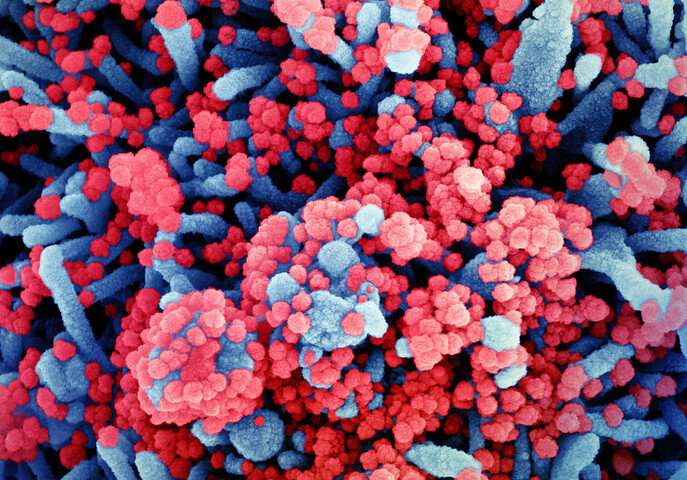
There are common vulnerabilities among three lethal coronaviruses, SARS-CoV-2, SARS-CoV-1 and MERS-CoV, such as frequently hijacked cellular pathways, that could lead to promising targets for broad coronavirus inhibition, according to a study by an international research team that includes scientists from the Institute for Biomedical Sciences at Georgia State University.
In the last 20 years, the world has faced three deadly coronaviruses: SARS-CoV-2, SARS-CoV-1 and MERS-CoV. SARS-CoV-2, the virus that causes COVID-19, has triggered a global pandemic that has already resulted in more than 37 million confirmed cases and more than one million deaths.
The study’s findings, published in the journal Science, identify commonalities among coronaviruses and highlight several shared cellular processes and protein targets that should be considered as targets for therapeutic interventions for current and future pandemics.
The results were achieved by a collaboration among nearly 200 researchers from more than 14 leading institutions in six countries. Dr. Christopher Basler, professor and director of the Center for Microbial Pathogenesis in the Institute for Biomedical Sciences, led efforts at Georgia State.
Prior studies have identified more than 300 host cell proteins that can interact with SARS-CoV-2 proteins. In this study, the Basler laboratory screened each of these for their capacity to change how well the virus grows.
“The efforts identified at least 20 host genes whose protein products significantly alter how much virus is produced by infected cells,” said Basler, a Georgia Research Alliance Eminent Scholar in Microbial Pathogenesis. “Those proteins represent potential targets for therapeutic intervention. For example, if a cellular protein is required for efficient virus growth, a drug that inhibits the cellular protein should slow the infection.”
Source: Read Full Article